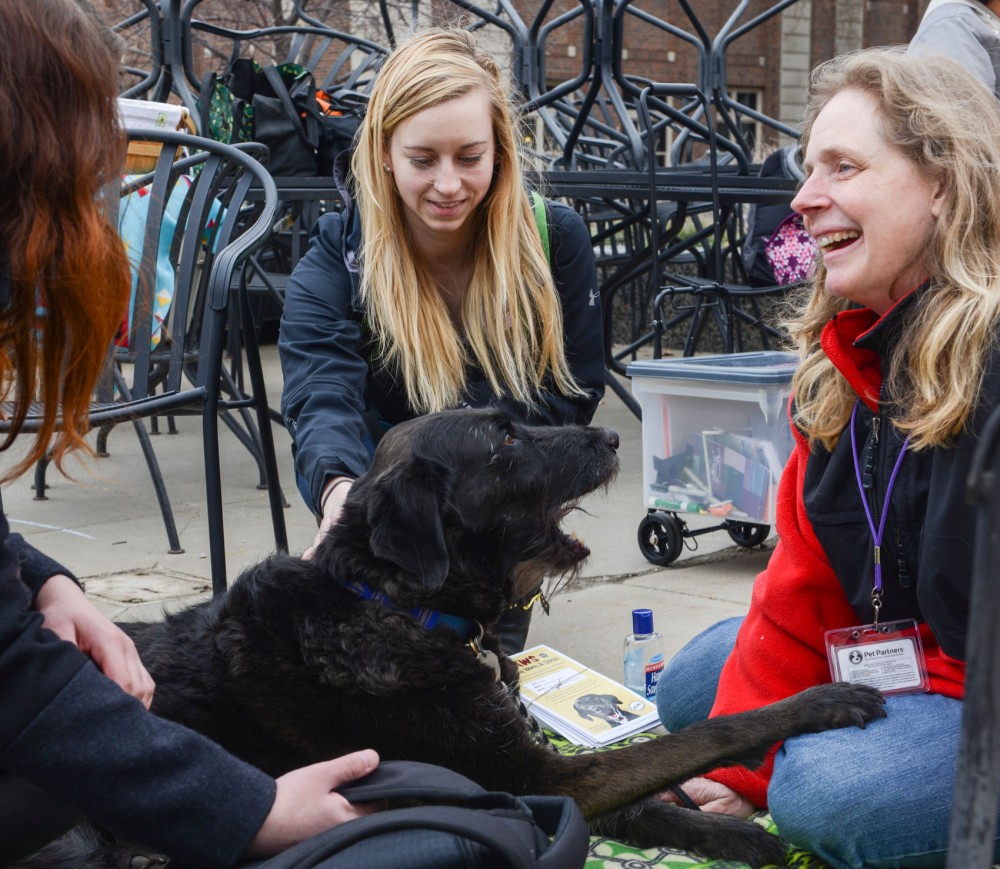For the first time in years, University of Minnesota students seeking mental health services won’t need to worry about being waitlisted this spring.
Boynton Health Service has added staff, opened a new mental health clinic in St. Paul and requested increased funding, and its efforts are starting to meet the ever-growing demand of student patients.
More than 36 percent of students have reported being diagnosed with at least one mental health condition within their lifetime, according to the most recent Boynton Student Health Survey. And that number has been steadily increasing.
In response, Boynton requested an additional $383,412 in Student Services Fees funding in January 2013 in order to expand its mental health services, ultimately receiving $289,892.
And those services were needed, said Boynton mental health services director Dr. Steve Hermann, because Boynton’s mental health clinic visit requests have increased by 21 percent from September to March of this school year. In past years, patient visits have only increased by about 5 percent on average, he said.
“We certainly know that without the expansion of the last year and a half, we would be running extremely long waits in therapy this year,” Hermann said. “It has made a tremendous difference in meeting this demand.”
Boynton has had to place students on waitlists for therapy appointments for years, with waitlists growing to as many as 40 students in spring 2012, but Hermann said no clinics needed to have waitlists this semester.
In September, Boynton added a mental health clinic in St. Paul to help more students receive care. The clinic has also increased staff and offices to respond to patient demand.
Now, when one clinic has a waitlist, Hermann said, it has the option to send students to the other campus clinic, which has also helped reduce waits.
Looking forward
There will be even more resources available to students for mental health help next year.
Along with student health advocates who are already present on campus to answer students’ questions about general health, Boynton is adding student mental health advocates next year.
Rather than expanding staff or offices to respond to an increase in requests, University Counseling and Consulting Services director Glenn Hirsch said his department is instead looking into other care methods, like online stress-management modules or text consulting. Services like these could also be available next year, he said.
Although Boynton consistently tracks and surveys student health trends, there hasn’t yet been an analysis to see if increased mental health visits have led to happier students or better general well-being. But Boynton Director of Public Health and Communications Dave Golden said Boynton plans to ask students about those aspects of health in next year’s survey.
Sydny Spires, president of the student group University Suicide Awareness and Prevention, said she doesn’t think the issue of mental health access on college campuses will go away any time soon.
With many students away from home for the first time and out of their comfort zones, Spires said, many will experience or know someone who will experience a mental health problem.
“The transition always brings out these sorts of things, so people should know about their resources,” Spires said. “We have the resources, so we should use them.”
Reducing the stigma
On an overcast Wednesday during Spring Jam week, student groups Active Minds and University Suicide Awareness and Prevention hosted Mental Health Awareness Day on Northrop Plaza to raise awareness of mental health issues and the resources available to students, as well as to reduce the stigma surrounding mental health.
The event had about 15 booths with activities like Jenga, button making and prize drawings. Speakers shared their stories, and members of USlam read poems. And 1,100 chairs stood empty on Northrop Plaza, representing and calling attention to the number of students who commit suicide nationally each year.
One in four adults experiences a diagnosable mental disorder every year, according to the National Institute of Mental Health. Even if people haven’t experienced a mental health disorder themselves, it’s important to be aware of the resources available so that they can better help others, said Active Minds President Audrey Blankenheim.
“[Mental health] really does affect everyone, and it takes a community effort to change it,” she said.
Along with expanding clinics and staff, Golden said Boynton is increasing preventative measures like Pet Away Worry & Stress and Cirque De-Stress to keep students from developing mental health problems in the first place.
He also recommends that students get enough sleep and take advantage of Boynton’s free weekly stress relieving activities, like yoga or tai chi.
Social worker and psychotherapist Daniel Perez, who graduated from the University last year, said he’s glad the stigma around mental health access seems to be decreasing, because it is natural for people to need help sometimes.
“At any point in our lives, any of us will need help,” he said. “That doesn’t make us weak, dependent or crazy. It just makes us human.”


